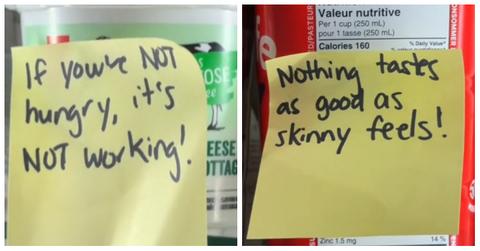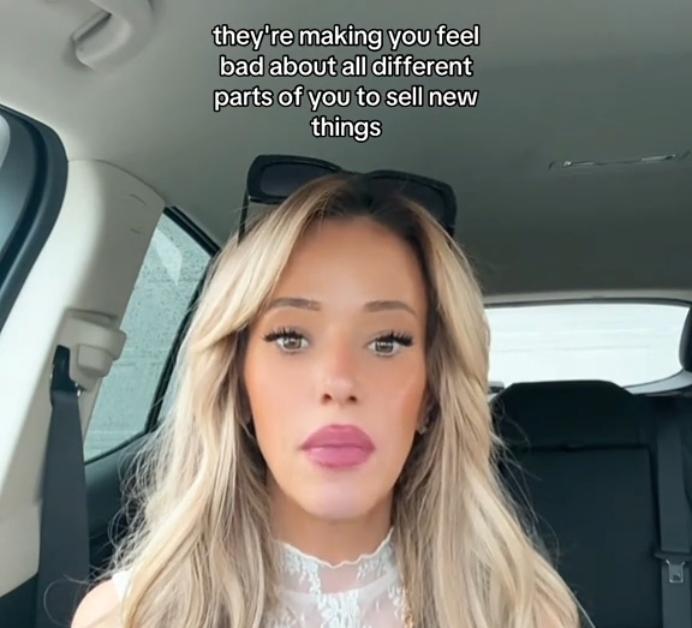What Is SkinnyTok? This Side of TikTok Transports You Back to the Worst Parts of the '90s
"If you're NOT hungry, it's NOT working!"
Published May 21 2025, 7:40 a.m. ET
If you were a teenager or young adult through the 1990s and early 2000s, you probably have a few lingering memories about the unattainable beauty and weight standards that characterized the decades.
Led by ultra-thin fashion models on magazine covers and in television series and moves, the pressure to lose weight and stay unreasonably skinny was intense.
The 2010s and early 2020s saw a bit of a swing back to a healthier mindset, with media finally representing people of all races, sizes, abilities, and levels of attractiveness.
Enter: SkinnyTok. The side of TikTok focused on trends encouraging people to lose weight and maintain a thinner body composition has been met with criticism, but what is it? Here's what we know.
TikTok's SkinnyTok: What is it?
In essence, SkinnyTok is the side of TikTok where people promote weight loss methods. On the surface, there's nothing wrong with a community for people to seek, receive, and offer support in maintaining weight loss or a smaller physique.
Tips for diets and exercise routines as well as accountability videos have sometimes offered a haven for those struggling with weight loss.
But not everything is butterflies and roses on SkinnyTok.
Many users have been accused of "shaming" those who exist in bigger bodies. In one video, a user shows a SkinnyTok trick that involves putting Post-It notes on food in the refrigerator to remind you of your weight loss goals.
Disturbingly, the notes read, "If you're NOT hungry, it's NOT working," "Nothing tastes as good as skinny feels!" "Is that worth being FAT this summer?" and more.
This clearly embraces the "shaming" side of SkinnyTok.
While some have defended SkinnyTok as being a place where people who are naturally thin can feel seen and represented, others have pointed out that it's more insidious and caters to those trying to sell weight loss solutions.
The internet is reacting to SkinnyTok in a surprisingly heartwarming way.
Luckily, it does not seem as though the internet as a whole is ready to go quietly into that dark night again, and SkinnyTok is getting some serious pushback. Including, surprisingly, from TikTok itself.
If you search "What is SkinnyTok?" on TikTok, you will be greeted with a message above your results. It reads, "If you or someone you know has questions about body image, food, or exercise — it is important to know that help is out there and you are not alone. If you feel comfortable, you can confide in someone you trust or check out the resources below."
The message adds, "Please remember to take care of yourselves and each other."
Users have created their own pushback to TikTok as well, with many calling it "dangerous" and "cruel."
One user, Morgan Lorraine Gallo, explained that SkinnyTok was basically where you go "if you want to get yelled at by a bunch of twenty-something able-bodied, thin, white, cis-gendered women, that's like all it is." She added in the caption, "Protect yourself, protect your energy."
She explained that it was basically a collection of fad diets and health and beauty trends, all aimed at shaming people into losing weight and buying products to help them do so.
But others, like Natalia Aranda, defended it as "not toxic," and listed out a number of reasonable-sounding things that SkinnyTok often promotes, such as "counting calories" and "saying no to food when you're not hungry."
Unfortunately, though, there's no vetting of SkinnyTok advice, and the "healthy" advice often gets mixed in with the toxic and dangerous advice. And to some, SkinnyTok's danger comes from the shame and guilt it often heaps on people who don't fit the skinny and healthy ideal, leaving those who struggle with medical and mental health conditions feeling othered and uncomfortable.
While SkinnyTok tries to defend its place on the internet, HealthTok would like to have a word.
If you or someone you know may be experiencing body image concerns or be at risk for an eating disorder, the National Eating Disorders Association has resources and a free screening tool at www.nationaleatingdisorders.org

